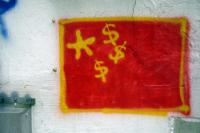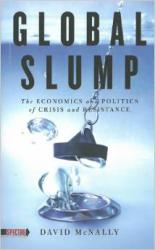 One of the most important issues in world politics today is China’s rise as a great imperialist power. Most left-wing writers consider China either as a “socialist country,” a “deformed workers’ state,” or as a “dependent capitalist country” exploited by Western monopolies.
One of the most important issues in world politics today is China’s rise as a great imperialist power. Most left-wing writers consider China either as a “socialist country,” a “deformed workers’ state,” or as a “dependent capitalist country” exploited by Western monopolies.
China’s Emergence as an Imperialist Power
Beyond Obamacare
The Affordable Care Act commentariat—including those confidently awaiting the day when all its promises are vindicated, those rooting for its ignominious demise, and those of us in a separate camp—have been kept occupied in recent months. Between autumn’s website drama and winter’s enrollment saga, the news cycle has been full of stories of IT dysfunctions tackled, right-wing challenges thwarted, enrollment goals met, electoral prospects threatened, and individuals newly insured (or variously dissatisfied).
Global Slump & the New Normal
 [It’s been nearly seven years since the onset of the global economic crisis that began in 2007. In order to get an understanding of the crisis—of its origins, depth, and trajectory, we spoke with David McNally, activist, political economist, and author of Global Slump: The Economics and Politics of Crisis and Resistance (2010) and more recently Monsters of the Market: Zombies, Vampires and Global Capitalism (2012). For readability’s sake, we have broken this interview into two parts. This first part focuses on the crisis itself, its causes, the way in which working life has been reorganized, the perspective of ruling elites in managing the crisis and pursuing austerity policies, and how this should help inform our stance as movement activists.
[It’s been nearly seven years since the onset of the global economic crisis that began in 2007. In order to get an understanding of the crisis—of its origins, depth, and trajectory, we spoke with David McNally, activist, political economist, and author of Global Slump: The Economics and Politics of Crisis and Resistance (2010) and more recently Monsters of the Market: Zombies, Vampires and Global Capitalism (2012). For readability’s sake, we have broken this interview into two parts. This first part focuses on the crisis itself, its causes, the way in which working life has been reorganized, the perspective of ruling elites in managing the crisis and pursuing austerity policies, and how this should help inform our stance as movement activists.
Mapping the New Oligarchy
Inequality is the theme of our time. It should perhaps be said that it has always been so. But after the surge of globalization since the 1990s, the decreasing fortunes of the middle class, and the more recent shock of the 2008 financial crisis, it has come more sharply into focus. It is within this context that Thomas Piketty has published Capital in the Twenty-First Century, a book that is exhaustively researched and brimming with empirical data and interpretation.
Contradictions of the Ruling Class in Ukraine
Ukrainian capitalism today is distinguished by the most fortified oligarchy of the post-Soviet states. Politics in Ukraine have been subject to volatile lurches over the last decade, driven by the direct involvement of masses of Ukrainians. Meanwhile, shaping the economic, political, and ideological aspects of society and daily life in Ukraine is a ubiquitous inter-imperialist competition between Russia on the one side and the United States and the European Union on the other.
Inequality Kills
Book Review
Göran Therborn. The Killing Fields of Inequality. Cambridge, UK: Polity Press, 2013. Hardback: $40.00 Paperback: $19.95 Kindle: $9.99
Arundhati’s Demands
Arundhati Roy, Capitalism: A Ghost Story. Haymarket, April 2014, $15 paperback.
When you think of ghost stories, you may recall Henry James, Hamlet, or Banquo. Maybe you smell a camp fire, the story going around, the threat of the flame as you extend your arm and that impaled marshmallow over the heat. Or maybe you sense those dying embers, the cool of night taking its grip.
Ecosocialism: Putting on the Brakes Before Going Over the Cliff
 Ecosocialism is an attempt to provide a radical, civilizational alternative to capitalism, rooted in the basic arguments of the ecological movement, and in the Marxist critique of political economy. It opposes to capitalism’s destructive progress (Marx) an economic policy founded on non-monetary and extra-economic criteria: social needs and ecological equilibrium.
Ecosocialism is an attempt to provide a radical, civilizational alternative to capitalism, rooted in the basic arguments of the ecological movement, and in the Marxist critique of political economy. It opposes to capitalism’s destructive progress (Marx) an economic policy founded on non-monetary and extra-economic criteria: social needs and ecological equilibrium.
Maybe We All Need Something More Than a Wife
During the early days of second-wave feminism, I remember reading Judy Brady’s essay “I Want a Wife” about how everyone needed “a wife,” that is someone to take care of the tasks of everyday life, as women were raised to do.
Wealth and Power in the U.S Out of Whack
Growing Income Disparities ‘Danger to System,’ says Former Clinton Labor Secretary
(A mixed review of Robert Reich’s documentary ‘Inequality for All’)
An Open Letter to the Climate Justice Movement
[The following open letter to more than 60 environmental justice organizations is a revised version of a talk given at a conference on "The Political Economy of the Environment" held in Brooklyn, New York, on October 5, 2013, co-sponsored by the Union of Radical Political Economy and New Politics. It will appear in the Winter 2014 issue of New Politics as part of a special section on the environment, featuring articles from several different points of view.
Capitalism Gone Wild
Review of The Unwinding: An Inner History of the New America by George Packer, Farrar, Straus and Giroux, 2013
This American life is a mess, argues George Packer in The Unwinding: An Inner History of the New America. It’s a nation fraying, with core institutions from government and finance to housing, jobs and education dysfunctional or “unwound.”
Jobs vs. the Environment
Is there a fundamental conflict between a healthy environment and a healthy economy?
As the 1 Percent Leaves the 99 Percent in the Dust, Bush’s Chief Economist is Smiling
Perhaps you shouldn’t be surprised that the chief economist during George W. Bush’s presidency seems happy that economic inequality in our country is at its most extreme since the Great Depression.
After all, the Bush administration delivered huge tax breaks to the wealthy, the very people described by the former president as his political base.
The Double Standard in Europe's Austerity Discourse
The International Monetary Fund acknowledged making an egregious error in its evaluation of the Greek bailout it helped create after its ambitious push for harsh austerity last month. Their failed analysis highlights the dangers of austerity measures imposed on Greek citizens. According to the IMF report:
Egypt: Not the next stage of the revolution
[from Weekly Worker 969, July 4 2013]
Rejoinder to Bratsis
In his review of Remaking Scarcity Peter Bratsis raises a number of important issues regarding the relationship between scarcity and economic democracy but does not always offer an accurate account of how the book specifies that relationship.
Boldly Going Nowhere
The financial collapse of 2008 was a sudden, shrill alarm that abruptly exposed neo-liberalism to be nothing more than a fool’s paradise. For decades, many Americans marched to the hypnotic music of free market fantasy and willfully ignored the low, droning crescendo of social decay. The hypnotic melody of constant growth, full employment, low taxation, and rugged entrepreneurialism muffled the warning sirens that had gone off around them.
Remake Scarcity or Desire?
Costas Panayotakis’ Remaking Scarcity is a bold attempt to combine the analysis of the ecological limits of capitalism with the call for “economic democracy.” A work that is both topical (with frequent discussion of contemporary developments such as the Arab Spring and the crisis in Greece) and scholarly, the book unfolds as a series of overlapping discussions on four key themes: scarcity, inequality, democracy, and ecological crisis.